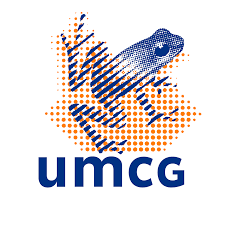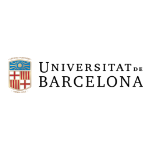Validation of an innovative dietary intake tool for healthcare implementation
The VALIDITHI project will prove the value of LogMeal, a tool that identifies food and the nutrients it contains from a simple smartphone photo, giving users a nutritional diary that they can share with medical professionals. LogMeal is far more accurate and versatile than other attempts to develop this technology, and its ease of use means people are more willing to adhere to the programme.
Origins
Chronic disease is responsible for the majority of healthcare costs, and half of these diseases are the result of unhealthy habits, with nutrition being a key factor. Compelling evidence shows nutrition’s ability to prevent, and even cure, disease, but many people have an inadequate food intake. Improving nutritional care via more accurate dietary intake assessment can improve peoples’ quality of life and care.
Team
- UMCG: Entrepreneurial clinicians.
- University of Barcelona: Developers of deep learning algorithms for food image analysis.
- Centre de Visió per Computador: Engineers applying computer vision technology.
- Nestlé Research: Nutritional experts, software developers and business mentors.
- Asc Academics: Health economics expertise to define different markets and sharpen the business model.
- IkDus: Experts in user managed Personal Health Environments.
The project
VALIDITHI is a project to validate a food-intake monitoring tool called LogMeal, which allows users to keep automatic food diaries by simply taking smartphone photos of their food. The application recognises the food in terms of dish, category and ingredients, and the nutrient composition is calculated based on national food composition databases. The application’s algorithms achieve a very high accuracy rate of 88%.
The application will be linked to a system that lets users monitor their own nutritional intake, suggests personalised meal plans and shares the data with nutritional professionals, who can design an individualised strategy for nutritional behaviour change via continuous feedback, education and motivation.
VALIDITHI will validate LogMeal and the system’s image analysis algorithms, which are based on two promising technologies: deep learning and computer vision. The main validation study will take place in University Medical Center Groningen. The study cohort consists of renal transplant recipients and their healthy donors – a specific population characterised by high-frequency hospital visits. Proper nutrition is a key factor for successful long-term survival with a transplanted kidney. The LogMeal application will be validated against 24-hour urinary biomarkers and dietary recalls. Alongside the medical validation, health economic market analyses and business models will show the impact and business opportunities of LogMeal.
Impact
Unlike current techniques for keeping a food diary, LogMeal is easy to use and accurate, offering a system that really works, and allows medical professionals to help their patients address nutritional issues. Better nutrition allows patients to avoid many of the most common chronic diseases and stay healthy. The benefits for payers and society will be cost savings from a reduction in chronic conditions. The new technologies validated by this project can also be used in other innovations.
Why this is an EIT Health project
EIT Health supports this project because it does the important work of validating new technologies that can have important health impacts. The project is in keeping with the EIT Health Focus Area of “Behavioural Change” because it gives people information that can help them monitor and change their diet. It is also in keeping with the Focus Area of “Bringing Care Home” because patients monitor their own eating habits.
External partners
- Centre de Visió per Computador
- Asc Academics BV
- IkDus, WijDus BV
Partners

CLC/InnoStars: Belgium-Netherlands
Partner classification: Business, Education, Hospital / University Hospital
Partner type: Associate Partner
The UMCG is a large university medical center focused on patient care, education, research and innovation aiming at societal impact and economic growth. The UMCG focuses on healthy ageing in all priority areas: research, clinical care and education.
University Medical Center Groningen (UMCG)
University Medical Center Groningen (UMCG), Hanzeplein 1, 9713 GZ Groningen, Netherlands






CLC/InnoStars: Spain
Partner classification: Education, Research
Partner type: Associate partner
The main research areas related to EIT Health at the University of Barcelona are: life and medical sciences, the experimental sciences (physics, mathematics, geology and chemistry), economics, business, law, humanities and educational and behavioural sciences. The University of Barcelona has a strong focus on Medical and Health Sciences (3,244 articles were written on this topic in the last six years, half of them in the first quartile, and 48 patents in the same period). UB has also a diverse network of University hospitals such as Hospital Clínic, Bellvitge Hospital and Sant Joan de Déu, and over 10 associated hospitals in the area of Barcelona. Additionally, there are several associated Research Institutes such as IDIBAPS, IDIBELL, ISGlobal, among others. Specialist areas include: nutrition, cancer, genetics, medicine (all specialities), nursing, pharmacy, physics, biology, chemistry, mathematics, prevention, drug discovery, bioengineering, law, economics and business development.
University of Barcelona
University of Barcelona, Gran Via de les Corts Catalanes, 585, 08007 Barcelona, España
Key Activities in Business Creation
Technology Transfer, Business coaching
Key Activities in Education
Entrepreneurship training, Medical faculties, Healthcare professional education/training


